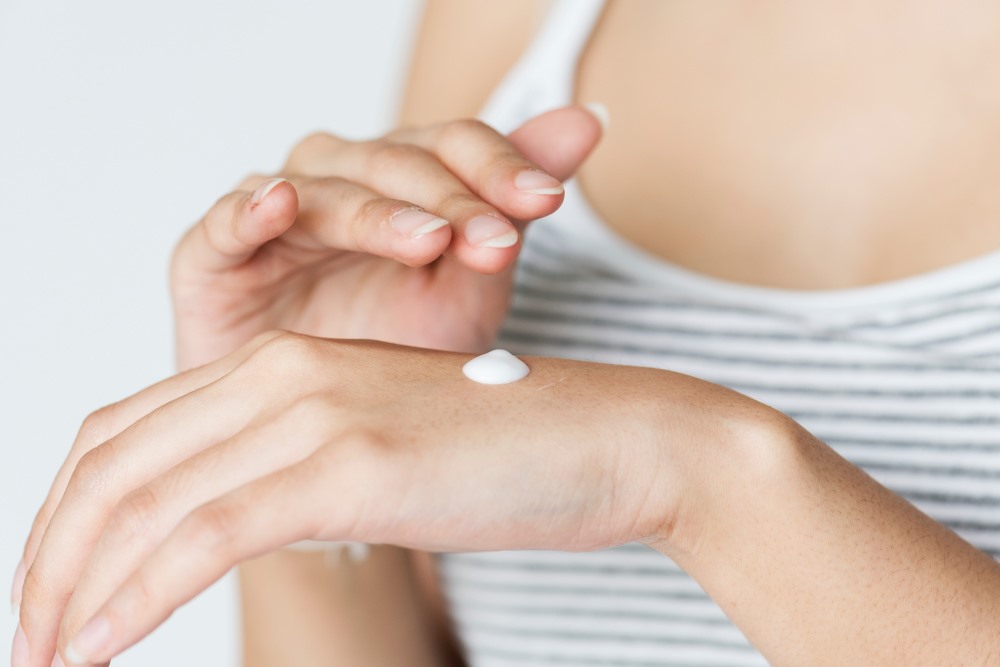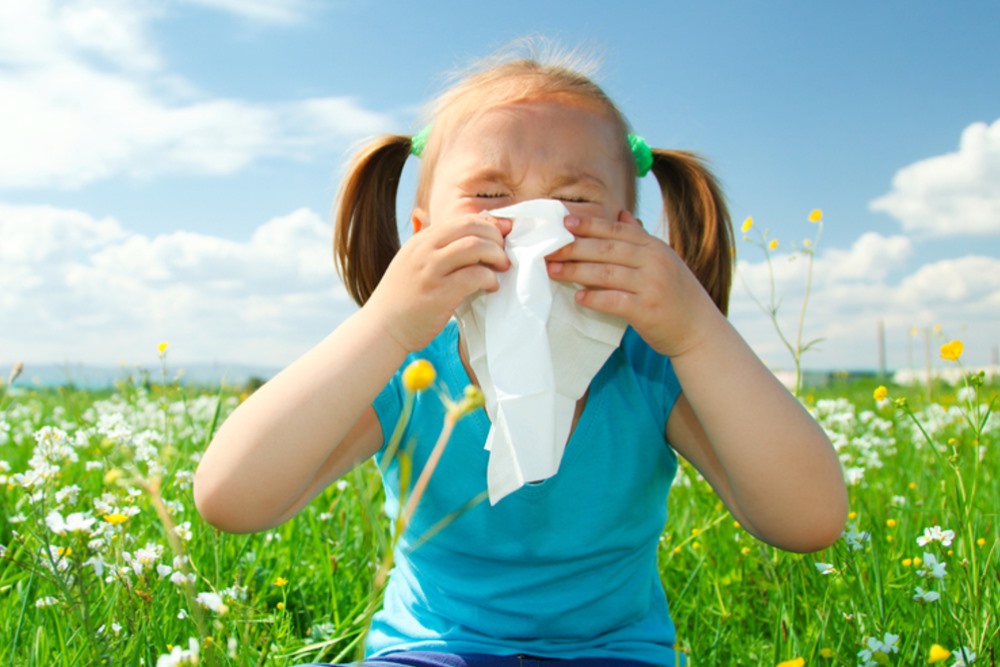Eczema is a recurring, non-infectious inflammatory skin condition that affects 1 in every 3 Australians. Although eczema can be effectively treated and managed, sadly no cure has yet been discovered. Eczema can occur at any time during someone’s life, however it seems to most commonly affect infants, where 1 in 5 children under the age of 2 will have symptoms such as dry skin, red and scaly areas of skin, itchiness and watery fluid weeping from affected skin.
- Infantile Eczema usually starts in the first 6 months of life, and can cause an itchy red rash and dry skin. Infantile eczema usually improves significantly in the ages of 2-5 years.
- Childhood Eczema may follow, or can start for the first time between 2-4 years. The rash and dryness are usually concentrated around the creases of the elbows, behind the knees, across the ankles, and may also affect the face, ears and neck. Luckily childhood eczema usually improves with age. While some children may completely outgrow their eczema, for many they will continue to suffer skin dryness and sensitivity into adulthood.
- Adult Eczema is similar to that in older children, with areas of very itchy, dry, reddened skin at the elbow creases, wrists, neck, ankles and behind the knees. At times, weeping of the skin can occur. Eczema usually improves during the middle years of life, and is rarely seen in the elderly, but it can still occur.
What Causes Eczema?
It is not well understood why some people have or develop eczema. It is very common for people with other allergies and sensitivities to also suffer with eczema, and it is also known that inherited genetic factors can cause eczema. People who suffer from eczema have less water retaining properties in their skin, compared to non- sufferers, meaning that moisture is easily lost from the skin, causing it to dry out more easily. Eczema is often called atopic eczema (meaning a type of allergy where a hypersensitive reaction occurs), or allergic eczema, due to those suffering with eczema also suffering many allergic conditions. Those with moderate to severe eczema may also suffer from immediate food allergies. This does not necessarily mean that removing the food allergen is the cause of the eczema, therefore removing it from the diet will cure the eczema, it just means that removing it will reduce the incidence of immediate reactions from occurring. Removing some food(s) may result in better eczema control, but this should always first be discussed with your doctor, and done under medical supervision. Having eczema means that the skin barrier is damaged, allowing moisture to evaporate, and making the skin more susceptible to allergens and irritants. The irritation of the skin causes it to release particular chemicals that make the skin itchy. The more you scratch and disturb the skin surface, the more these chemicals are produced, leading to the distressing ‘scratch and itch’ cycle.
What are Eczema’s Symptoms?
Eczema affects the skin by causing itching, oozing, redness, and over time rough, hard, thickened skin. It is a disease that can get better or worse in a matter of days, weeks and months. When a sufferers skin worsens, this is usually referred to as an eczema flare. Being aware of the triggers that cause a flare in eczema, and having a good treatment plan and regime can ensure these triggers don’t affect the sufferers overall quality of life. Known Eczema Triggers:
- Dry skin
- Scratching
- Viral or bacterial infections
- Swimming in chlorinated swimming pools
- Playing in sand and sandpits
- Sitting directly on carpets or grass
- Inhalant allergens – worsening of the skin in spring and summer may be due to increased pollen activity
- Food intolerances
- Irritants such as perfumes, soaps, detergents, fabrics
- Temperature changes (such as increased heat)
- Stress
Eczema Treatment
The most important treatment for Eczema prone skin is to keep skin well hydrated with regular moisturising, even when Eczema symptoms are relatively well controlled.
- Use a non-soap based wash or oil
- Moisturise the skin as frequently as possible (2-3 times daily) and always after bathing or showering
- Treat flare ups quickly, and have a flare-up treatment plan
- Control the itch – cold compresses and wet wraps usually work best
- Control and prevent infection
- Avoid triggers and irritants
There are many non-prescription products that can help you manage and treat your skin condition. From probiotics that can assist with lessening itching, and sleeplessness, to gentle body washes, cleansers and moisturisers. Come in and chat with our pharmacists about a good skin care and management regime.


